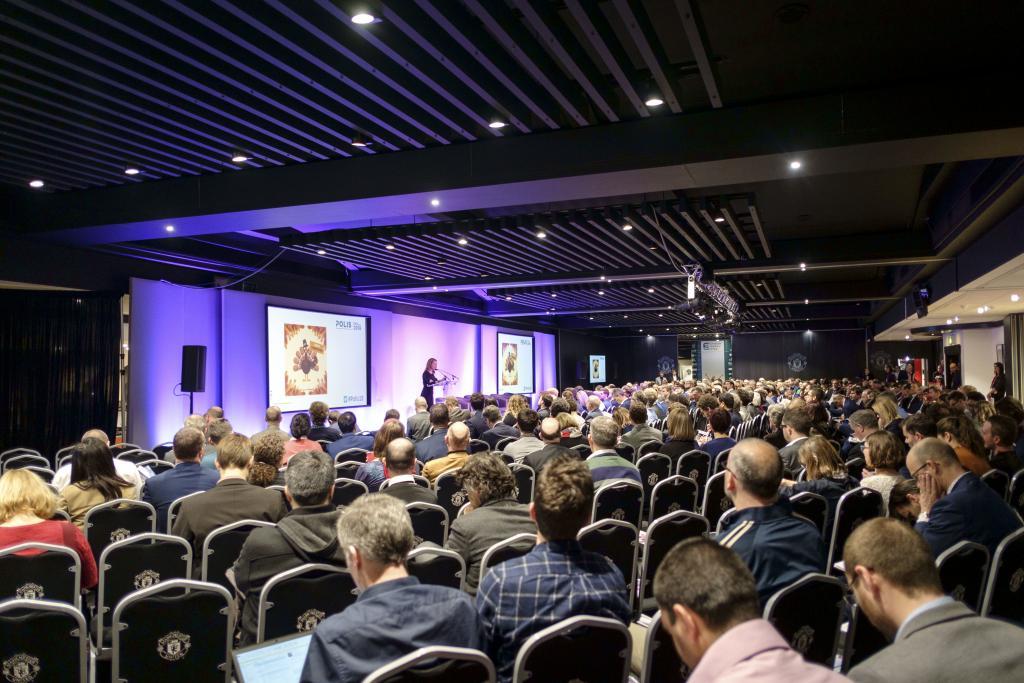PRESS RELEASE: Quality of life should be starting point of all urban mobility policies
MANCHESTER, 26 NOVEMBER 2018 - After two days of intense discussions on the latest transport innovations in cities and regions, Polis closed its 2018 Conference with a plenary session on the management of urban space, titled ‘Get out of my space!’.
In her keynote speech, Helle Lis Søholt, CEO and co-founder of Gehl said: ‘We need to deliver and co-create lively and healthy public spaces. Technology and data are not the goals; they are only enablers.’ She added that the relationship with citizens is as essential to public space design. ‘We need to understand their behaviour and culture and should find ways to engage with them.’
Harriët Tiemens, Deputy Mayor of the City of Nijmegen, shared her experiences with giving space to walking and cycling and the development of a regional network of fast cycling routes. Tiemens mentioned political support, a structural budget and a long-term vision as key ingredients for successful active travel policies.
Pascal Smet, Minister for Mobility and Public Works of the Brussels Capital Region, gave an account of his efforts to change the car-oriented culture of Brussels, which tops the congestion index, towards a more sustainable mobility culture. Smet stressed that rather than focusing on transport modes, cities should consider quality of urban life as the ultimate objective of mobility policy. He also underscored the importance of visuals in a society that increasingly focuses on images, to make people see what kind of change is possible: ‘You should visualise the situation of today and the situation of tomorrow.’
Adrià Gomila, Director of Mobility Services at the City of Barcelona, shared his experiences with the re-allocation of space in the context of the city’s superblocks project. Shared space and the prevention of through traffic are central to this approach.
Marius Macku, Senior Associate Public Policy and Government Relations at Uber said: ‘Urban designers, decision makers and private companies should get around the table and discuss how they want to design cities that are made for people.’
The debate also touched upon the potential of prototyping public space, i.e. trialling space reallocation through temporary pilots. The panellists agreed that prototyping is a challenging but effective means of showing and experiencing new ways of space allocation. It can also bring citizens and decision makers closer to shared ideas about public space.
Dynamic space management remains an untapped potential, said Helle Lis Søholt. Until now, public space design does not accommodate differences between times of the day, weekdays and weekends, and seasons. ‘Technologies enable us to understand behaviour better, which allows for responsive designs.’
The 2018 Polis Conference closed with presentation of the Thinking Cities Award, handed out by TomTom. Every year, the Thinking Cities award is given to a city or region for an innovative and transferable mobility solution. The City of Gothenburg received the prize for their ‘Digitalised Zones’ project. This project uses geofencing to prevent speeding as well as make hybrid vehicles switch to electric engine automatically when entering the urban environmental zone. Malin Andersson from the City of Gothenburg said: ‘The award confirms that Gothenburg is an innovative city. We want to use technology to achieve social benefits and are able to show that.’ A new edition of the Thinking Cities magazine was released by H3B Media and Polis at the occasion of the 2018 Conference.
The Polis conference also marked the launch of the paper Local Opportunities for Digital Parking. This Polis paper, produced by the network’s Parking Working Group, gives recommendations on the implementation of local digital parking ecosystems and the use of open standardised data. The paper emphasises that the potential of digital parking extends beyond the facilitation of payments. Data from digital parking can help local authorities to make informed decisions on transport and urban planning.
The CEDR funded research project ISAAC launched its new PedBikePlanner tool at the 2018 Polis Conference, which provides tailored recommendations about how walking and cycling can be stimulated without compromising safety.
The 2018 Polis Conference was the most successful edition ever, with a record number of 550 participants. In 2019, the annual event will return to Brussels, and will celebrate the network’s 30th anniversary.
<END>
Contact
Dagmar Köhler, Communication Manager, dkoehler@polisnetwork.eu.
Note to editors
Polis is the network of European cities and regions working together to deploy innovative solutions for more sustainable mobility. Since 1989, Polis has supported its member cities and regions with achieving their mobility policy objectives. Polis fosters cooperation and partnerships across Europe and with the EU, to make transport research and innovation more accessible to cities and regions.
Polis’ Annual Conference represents an important annual highlight for urban mobility professionals to connect. The conference provides an opportunity for cities and regions to showcase their transport achievements to an international audience, and for the wider transport community to engage with representatives of local and regional authorities on innovative transport solutions.
